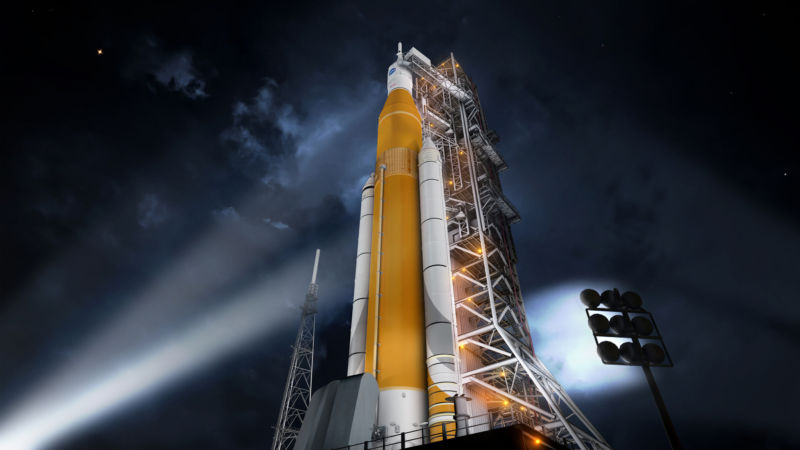NASA realizes SLS and Orion are too expensive, opens door to competitors
Ars Technica » Scientific Method 2016-11-18

Enlarge / Artist concept of the Space Launch System. (credit: NASA/MSFC)
With a new presidential administration promising to review its human spaceflight activities, NASA on Thursday continued to signal a willingness to consider alternatives to its exploration systems—the Space Launch System rocket, Orion spacecraft, and related ground systems developed at Kennedy Space Center to support their launch later this decade and in the 2020s.
In its latest request for information (RFI) released Thursday afternoon, NASA seeks solutions from industry and academia to maximize "the long term efficiency and sustainability" of its of exploration systems programs. Essentially, NASA wants ideas on how best to cut the production and operations costs for its SLS rocket and Orion spacecraft, which presently consume more than $3 billion annually in development costs. However, the RFI also offers respondents the opportunity to submit ideas about rockets and spacecraft that might compete with NASA's own vehicles for exploration funds.
Specifically, the document requests responses about: "Competing exploration services in the mid-2020s timeframe and beyond if the market demonstrates such services are available, reliable, and consistent with NASA architectural needs." Ars understands this to mean that if private competitors such as SpaceX, Blue Origin, United Launch Alliance, or other companies produce less expensive rockets and spacecraft within the next five to seven years, NASA will consider using them in lieu of SLS and Orion.